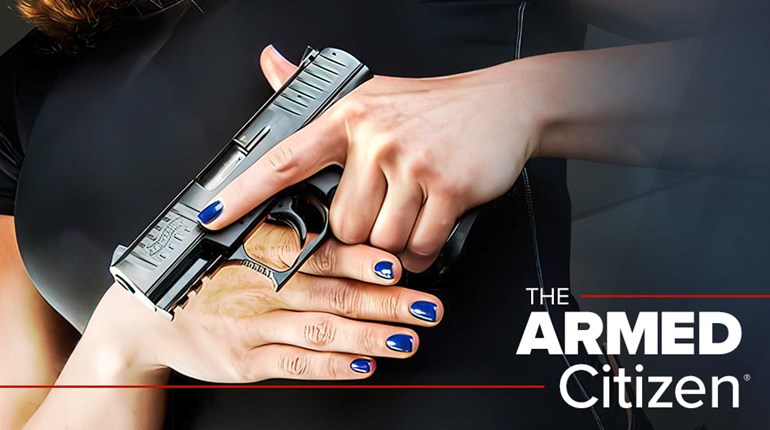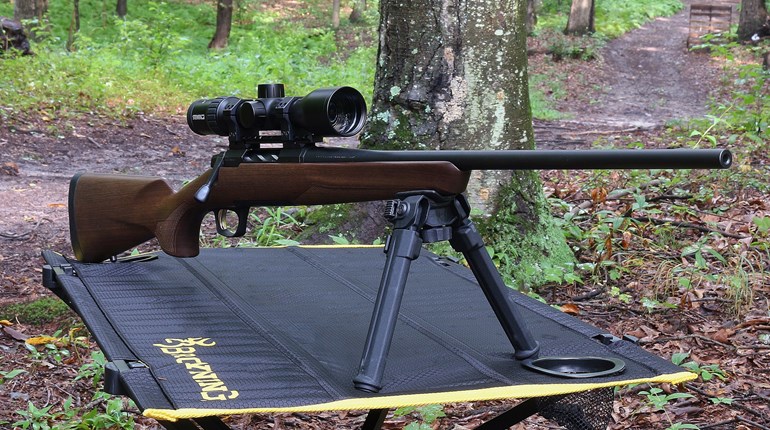
I watched “Lone Survivor” again this weekend, the movie version of Navy SEAL Marcus Luttrell’s emotionally draining book. It is a disturbing account of a mission gone terribly wrong, resulting in a desperate firefight against an overwhelming Taliban force in the mountains of Afghanistan. Pinned down, cut off and wounded, the four bloodied SEALs are forced to leap down the vertical rock face, cartwheeling out of control into the mute trees and brutal boulder fields below—not once, but twice. The sound of flesh smacking into rock, at speeds more suitable for the highway, is the stuff of nightmares.
Riveted to the screen, I see Luttrell’s service rifle ripped from his hands, careening wildly off the rocks and gouging itself into the dirt.
Through the haze of pain and blood, Luttrell realizes that his rifle has come to rest near him after both falls. He is amazed to find that it still functions. He is broken and battered, but he is still in the fight.
The thought occurred to me: What would Luttrell’s VX be if he had carried a so-called “smart” gun?
Smart gun entrepreneurs have found that applying delicate smartphone tech onto rugged steel and polymer weapons, and making it work in harsh environments, is harder than just writing an Angry Birds app. Despite threats from the federal government under Bill Clinton, state legislative mandates and even Silicon Valley investments, there is currently no reliable, affordable smart gun—after 30 years of trying. Failing to force consumers and/or gun manufacturers into adopting unreliable technologies, the Obama administration is now trying a new tactic: It wants the federal government to buy smart guns, thereby using its massive buying power to “change the gun culture.” This is like testing a brand-new laptop computer by bolting it into the space shuttle. Check that; it’s more like bolting it onto the space shuttle.
In April, the Departments of Justice (DOJ), Homeland Security (DHS) and Defense (DOD) released a report titled, “Report to the President Outlining a Strategy to Expedite Deployment of Gun Safety Technology.” Obama is quoted in the introduction, saying, “you can’t unlock your phone unless you’ve got the right fingerprint, why can’t we do the same thing for our guns?” The report says, “The President is right.”
The administration will start by encouraging federal, state and local law enforcement purchasing power to spur development. In other words, to achieve its political ends, the administration wants to test new, unproven, expensive technology on those whose very lives depend upon functioning firearms.
This is like testing a brand-new laptop computer by bolting it into the space shuttle. Check that; it’s more like bolting it onto the space shuttle.
The truth is, guns are already smart.
Firearms were the first high-tech industry. (Beretta, the oldest continually operating company in the world, has an invoice to the city of Venice for cannon barrels from the 16th century.) Today’s guns are the product of centuries of development in design, materials science, engineering, tooling, propellants and metallurgy. They operate reliably in extreme heat or cold, in sand, mud, even after being submerged. They can be dropped, sat on, stepped on and bled on, and they still function. They can sit for years and, with a touch of maintenance, will operate perfectly. They have a useful lifespan measured in decades, if not centuries.
Any product that you can chuck off a mountain in Afghanistan, bounce off rocks, pick up out of the dirt and still put rounds on target is not just smart; it’s freaking brilliant.
Now, let’s consider smart phones, the technology that inspires favorable comparisons from smart gun promoters. My smart phone is such a wonder of technology that its battery exhausts itself just trying to make it to lunch. If I drop it in water, I have to take it apart and let it dry. In fact, if a drop of water even falls on the screen, it goes into a coma. Its touch-id technology is ideal under ideal conditions, but it doesn’t work if my thumb has even a smidge of grime on it. If I wash my hands, it won’t work because my thumb is now moist. It won’t even work if my thumb is wrinkled from the shower.
If I leave it in a hot car, it tells me it must cool down before I can use it. If it gets too cold, I have to let it warm up before use because it doesn’t like condensation.
And you can forget throwing it off a mountain: It can’t even survive a fall from my nightstand.
If I was dating my smart phone, I might charitably describe it to my friends as “high-maintenance.”
Here at VX studios, we gathered in the break room at lunch to brainstorm a sequel to “Lone Survivor.” Set in the year 2024, we have chosen to give the SEALs smart guns. As usual, we’ll give the SEALs 100 basis points for their VX, and add or subtract points as they become more, or less, vulnerable. Please, be considerate and silence your cell phones:
- The SEALs spend days hiking from the LZ to their objective. Along the way, their smart gun batteries die. So do they. (+1,000 pts.)
- The SEALs wear gloves, defeating fingerprint or palm print id. Their guns don’t work. They die. (+1,000 pts.)
- A SEAL stumbles while scrambling over a goat path at 7,000 feet. His smart gun bumps a rock and knocks a circuit loose. It dies. He dies. (+1,000 pts.)
- A SEAL is wounded in a gun fight. He has blood on his shooting hand, impairing his smart gun connection. It fails. He dies. (+1,000 pts.)
- Wounded in his strong hand, a SEAL has to shoot with his weak hand. Unfortunately, the smart watch on his strong wrist, which enables his smart gun, is also weak. He dies. (+1,000 pts.)
- One SEAL picks up the smart gun of another SEAL when he goes down, but the smart gun doesn’t know him. He goes down, too. (+1,000 pts.)
- We set “Lone Survivor II” in sub-Saharan Africa, but the smart guns got too hot. The SEALs all died. (+1,000 pts.)
- We returned to Afghanistan, but it snowed. The smart guns got some condensation in them. The SEALs all died. (+1,000 pts.)
- We set it anywhere, but it turns out it rains most places. The smart guns took a nap. The SEALs died again. (+1,000 pts.)
We fed the above scenarios into the VX supercomputer, and substituted “hesitated” for “died” when referring to smart gun fails. The SEALs still died.
On the upside, we could think of no scenario where an ISIS, al Qaeda, al Shabaab, Taliban or other bad guy picked up a SEAL’s smart gun and shot him with it. (-1 pt.) So, you can’t say we haven’t been fair.
But we also couldn’t think of a scenario where the SEALs’ situation was made better by making their already smart gun more like their smart phones.
So, tell us, Mr. Obama, are you really willing to risk our servicemen’s lives by dumbing down their guns?


































